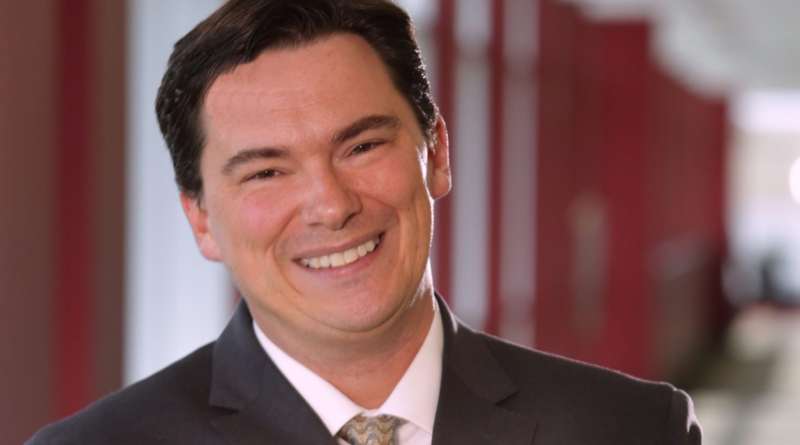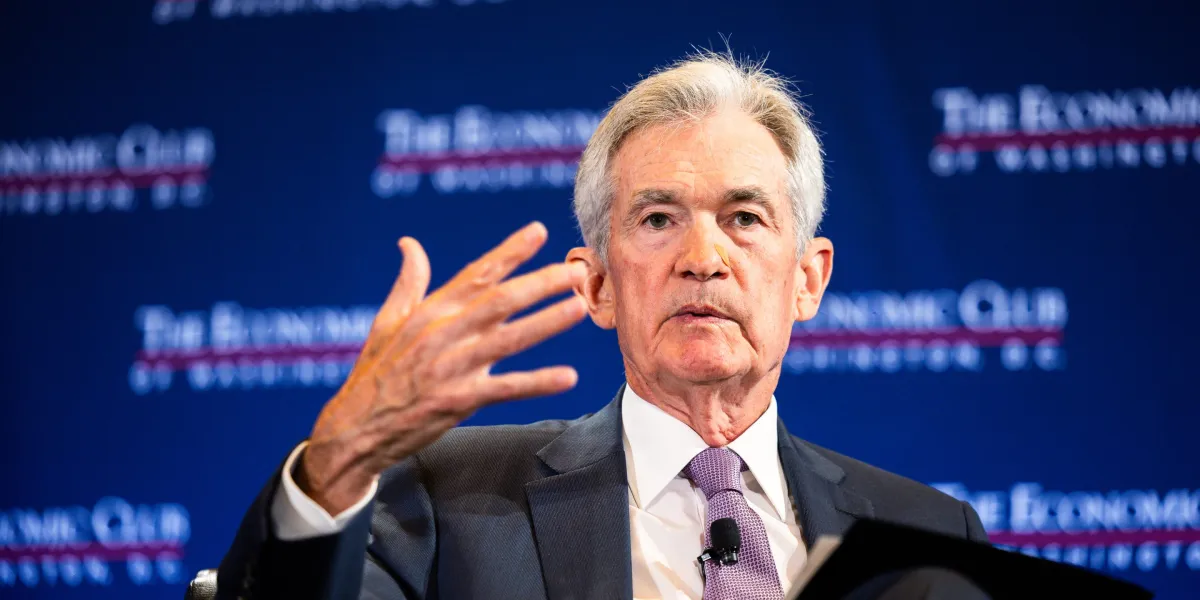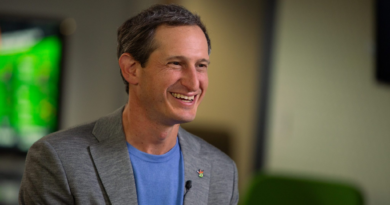How Office Depot’s president builds trust with shoppers in a digital world
“Hi, welcome to Office Depot,” doesn’t cut it for Kevin Moffitt.
Each week, the office supply retail chain led by Moffitt tracks its “greet score”—the percentage of customers who say they were welcomed at the front of the store. During that greeting, associates are also expected to ask pointed questions.
“It’s really intended to be a ‘What brought you in today? What are you looking for? What problems are you trying to solve?’” Moffitt tells me from Office Depot’s HQ in Boca Raton. The goal: “To try to get to know a customer as soon as they walk in the door.”
For Moffitt, who’s also president of OfficeMax and executive VP of parent company The ODP Corporation, making that connection is a way to build trust.
“It’s really thinking about the entirety of the customer experience and trying to create an environment where they feel like they are not only purchasing a product but solving a problem.”
In a digital world where we spend so much time staring at a screen, that’s more crucial than ever, reckons Moffitt, who’s been president since 2022 and leads some 12,500 associates. “There’s an overwhelming amount of choices available to just about anyone at any time,” he says. “And there is the lost artform—or it seems at times—of actually talking to another human being.”
Here, Moffitt sees benefits for small-business customers, whom he describes as the core of Office Depot’s client base. In customer satisfaction surveys, the three things that always earn the highest marks are the company’s “helpful, friendly, and knowledgeable” associates, he says.
“Those words encapsulate exactly what we’re trying to do and our competitive differentiation in the marketplace, and I do think that comes down to trust,” adds Moffitt, who joined ODP in 2012 and was previously Office Depot’s chief retail officer and chief digital officer. “Having someone that you know and trust to do a job for you, particularly in the world of small business.”
Many small-business clients are regulars. “I’ve heard our customers say that, you know, ‘Susie in your copy and print center, I think of her as my marketing team,’” Moffitt explains. “At the core is this human-to-human opportunity for interaction that I think is really important.”
Office Depot balances its willingness to stop and chat with an acknowledgment that some people need their ink, paper, and staples in a hurry.
The company runs what Moffitt bills as the fastest store pickup program in the country—with a guarantee. “If you don’t get an email from us in 20 minutes that your order is ready to pick up, we automatically send you a $20 coupon.”
Although it might sound counterintuitive, Office Depot also enlisted artificial intelligence to boost human interaction.
ODP built an AI tool connecting team members with company knowledge that was traditionally stored on an intranet, or even in a binder somewhere, he explains. All associates carry mobile devices with this digital assistant. If a customer has a question like “How do I laminate this menu?” even a new associate can answer it, Moffitt says.
“It allows them to easily get access to that information and the processes or procedures involved so that they can take care of that customer right there in the store.”
For any retailer that wants to build trust, it starts with asking some basic questions, Moffitt suggests. “How would you want to be treated?” he says. “How would you treat one of your family members or friends? How would you want them treated if they were to walk into one of your locations or visit your website?”
ODP has a “5C” culture that CEO Gerry Smith defined early in his tenure, Moffitt notes. Its principles: customer, commitment, change, caring, and creativity. “My favorite C is customer,” Moffitt says. “If you start with the customer at the center and work your way from there, I think you’re going to have a whole lot better chance of creating that trust.”
Problem solved.
Nick Rockel
nick.rockel@consultant.fortune.com
IN OTHER NEWS
Born with it
Warren Buffett had good reason to trust that he would grow wealthy, he just revealed in a letter to shareholders. “As I write this, I continue my lucky streak that began in 1930 with my birth in the United States as a white male.” The billionaire investor pointed out that his two sisters didn’t get the same rights as him until much later in life, Sasha Rogelberg reports. “So favored by my male status, very early on I had confidence that I would become rich.” Buffett has long viewed success as largely a matter of luck—prompting him to pledge 99% of his fortune to charity. Talk about money well spent.
Rough start
If anyone doesn’t trust AI, it’s Gen Z. Roughly 60% of that generation think the technology could replace their jobs in the next decade, a recent survey shows. By contrast, just 6% of directors and VPs believe AI puts their roles at risk. Younger workers probably feel more threatened because they have little power over how the technology affects their companies, Chloe Berger writes. They might also be nervous because they’re just starting out—and often doing entry-level work that AI can replicate. Fair enough.
Social call
When it comes to keeping kids off social media, Australia isn’t trusting platforms to police themselves. The government has proposed new laws that could see Facebook, Instagram, TikTok, and X get fined up to $32.5 million for failing to block children under age 16. If they pass, Oz will have some of the toughest rules aimed at protecting youngsters from social media. One big question is how purveyors would enforce such a strict age ban, with observers doubting it’s technically feasible. Surely those Big Tech brains can figure it out.
Empty calories
Apparently, European grocery shoppers can’t trust their own eyes. That’s the warning from EU auditors, who say consumers are at risk of being tricked by confusing and sometimes misleading food labels. Although the EU requires producers to list ingredients, allergens, and other information on packaging, they’re also allowed to exaggerate potential benefits and downplay other qualities. Adding to the confusion, different front-of-pack nutritional labeling systems are in play throughout the 27-country bloc. Time for a simpler recipe?
TRUST EXERCISE
“For decades, scientists have published peer-reviewed studies on hazardous chemicals in plastics and have called out for action, all to no avail. Now medical practitioners on the front line of this plastic crisis are sounding the alarm ahead of the final round of UN negotiations for a Global Plastics Treaty. The urgent message cannot be overlooked: Plastic is a threat to human health.
The lack of transparency around the plastics industry has led academics and campaigners to search for facts—and those facts are startling. Some 16,000 chemicals are used in plastic and yet only 6% are currently subject to international regulation. Of those 16,000 chemicals, many are endocrine disruptors, meaning our hormones and bodily functions are under constant attack when exposed. With a new chemical being produced every 1.4 minutes, our exposure is only set to rise.”
You’re soaking in it—the toxic soup created by the plastics industry, which has betrayed its public trust. Those chemicals cause cancer, infertility, heart disease, and other illnesses, notes Leonardo Trasande, director of the Division of Environmental Pediatrics at New York University’s Grossman School of Medicine. Recycling—pitched by the industry as a panacea—could make exposure even worse.
Trasande flags the huge social costs of plastic chemicals too: 1.22% of America’s GDP, or $250 billion in annual health care expenses.
He also warns companies and investors that they can’t escape corporate liabilities for plastic-related pollution. By the end of the decade, that tab will probably top $20 billion in the U.S. alone. In other words, laws—and lawsuits—are coming for offenders’ profits.
With final negotiations on the Global Plastics Treaty underway until Dec. 1, Trasande wants to see a deal with teeth. The keys to corporate accountability and reducing public risk: mandatory testing of all chemicals, funding to scale up natural alternatives, and a cap on production. The payoff? A future that isn’t made of poisonous plastic.




